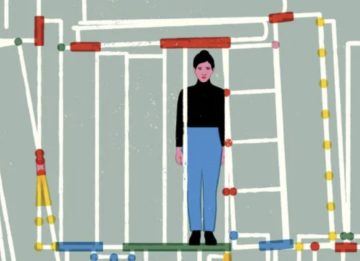Maggie Doherty in The Nation:
 Not so long ago, there seemed to be something radical in rejecting the future. Looking back, it’s easy to see why. In the 1990s, history was over; the United States and capitalism had won. Strutting conservative televangelists and smug liberal technocrats took turns running the world. Globalization promised more of everything: more productivity, more innovation, more wealth. Economic prosperity and regressive moralism went hand in hand. The nuclear family was once again sacred, and non-normative sexuality remained stigmatized: Don’t ask, but also don’t tell. Conservatives—as well as some liberals—supported any policy that promised to protect children, born and unborn, so they might take advantage of the bright future that awaited them. Meritocracy was supposedly thriving, even as inequality prevailed everywhere.
Not so long ago, there seemed to be something radical in rejecting the future. Looking back, it’s easy to see why. In the 1990s, history was over; the United States and capitalism had won. Strutting conservative televangelists and smug liberal technocrats took turns running the world. Globalization promised more of everything: more productivity, more innovation, more wealth. Economic prosperity and regressive moralism went hand in hand. The nuclear family was once again sacred, and non-normative sexuality remained stigmatized: Don’t ask, but also don’t tell. Conservatives—as well as some liberals—supported any policy that promised to protect children, born and unborn, so they might take advantage of the bright future that awaited them. Meritocracy was supposedly thriving, even as inequality prevailed everywhere.
In response, a reasonable nihilism emerged in the era’s counterculture. If conservatives, and even some liberals, were “pro-life” and “focused on the family,” all in the name of a bountiful future provided to us by the end of the Cold War, then what positions should radicals take?
More here.
